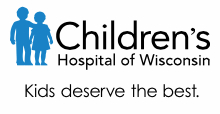Tacrolimus/Everolimus vs. Tacrolimus/MMF in Pediatric Heart Transplant Recipients Using the MATE Score
| Status: | Recruiting |
|---|---|
| Conditions: | Renal Impairment / Chronic Kidney Disease, Cardiology, Infectious Disease, Hematology |
| Therapuetic Areas: | Cardiology / Vascular Diseases, Hematology, Immunology / Infectious Diseases, Nephrology / Urology |
| Healthy: | No |
| Age Range: | Any - 21 |
| Updated: | 2/17/2019 |
| Start Date: | January 29, 2018 |
| End Date: | April 2022 |
| Contact: | Kevin P Daly, MD |
| Email: | kevin.daly@cardio.chboston.org |
| Phone: | (617) 355-6329 |
Phase III Multicenter Open-label Randomized Clinical Trial Comparing Everolimus and Low Dose Tacrolimus to Tacrolimus and Mycophenolate Mofetil at 6 mo Post-Transplant to Prevent Long-term Complications After Pediatric Heart Transplantation
The TEAMMATE Trial will enroll 210 pediatric heart transplant patients from 25 centers at 6
months post-transplant and follow each patient for 2.5 years. Half of the participants will
receive everolimus and low-dose tacrolimus and the other half will receive tacrolimus and
mycophenolate mofetil. The trial will determine which treatment is better at reducing the
cumulative risk of coronary artery vasculopathy, chronic kidney disease and biopsy
proven-acute cellular rejection without an increase in graft loss due to all causes (e.g.
infection, PTLD, antibody mediated rejection).
months post-transplant and follow each patient for 2.5 years. Half of the participants will
receive everolimus and low-dose tacrolimus and the other half will receive tacrolimus and
mycophenolate mofetil. The trial will determine which treatment is better at reducing the
cumulative risk of coronary artery vasculopathy, chronic kidney disease and biopsy
proven-acute cellular rejection without an increase in graft loss due to all causes (e.g.
infection, PTLD, antibody mediated rejection).
Median survival after pediatric heart transplantation (HT) is 15 years in the current era.
This means that a substantial fraction of patients transplanted during childhood fail to
survive to adulthood, or require heart re-transplantation, because of complications related
to heart transplant. These complications include heart transplant rejection, infection,
coronary artery disease, post-transplant lymphoproliferative disorder (PTLD; a form of
lymphoma seen in transplant recipients), and kidney failure. Most complications stem not from
the heart transplant itself, but from the drugs commonly used to suppress the immune system
in order to prevent rejection. In the US, tacrolimus (TAC) and mycophenolate mofetil (MMF),
have emerged over the past decade as the standard of care for pediatric heart transplant
immunosuppression. While pediatric survival has improved significantly in the era of TAC and
MMF, post-HT complications remain a major problem that limits median survival to 15 years.
Recently, everolimus (EVL) has emerged as a potential alternative immunosuppressant that may
prevent rejection, coronary artery disease and kidney failure more effectively than TAC/MMF
when administered in combination with low-dose tacrolimus (LDTAC). Preliminary studies
suggest that EVL, and its first-generation analog sirolimus, are well tolerated in children
after HT, regardless of whether it is started in response to coronary artery disease, in
response to chronic kidney disease, or empirically 4-6 months after transplant in an effort
to prevent the development of these complications1. However, studies are generally limited to
single-center experiences using historical controls and have inadequate statistical power to
demonstrate treatment differences. This will be the first multicenter randomized clinical
trial of maintenance immunosuppression in pediatric heart transplantation to systematically
evaluate the safety and efficacy of EVL with LDTAC vs. TAC/MMF to prevent long-term
complications which lead to death/graft loss. The major adverse transplant event (MATE) score
will serve as the primary endpoint to power the trial. Because no Food & Drug Administration
(FDA)-approved immunosuppressants currently exist for children after heart transplant (all
prescriptions are off-label) and market incentives to support a trial are limited, the
investigators have funded the trial through a Fiscal Year 2016 Peer Reviewed Medical Research
Program Clinical Trial Award sponsored by the Department of Defense office of the
Congressionally Directed Medical Research Programs. It is worth noting that in contrast to
adults, children have a substantially longer potential life expectancy if post-transplant
complications can be minimized, making the prevention of late complications an urgent
priority for the pediatric heart transplant community.
This means that a substantial fraction of patients transplanted during childhood fail to
survive to adulthood, or require heart re-transplantation, because of complications related
to heart transplant. These complications include heart transplant rejection, infection,
coronary artery disease, post-transplant lymphoproliferative disorder (PTLD; a form of
lymphoma seen in transplant recipients), and kidney failure. Most complications stem not from
the heart transplant itself, but from the drugs commonly used to suppress the immune system
in order to prevent rejection. In the US, tacrolimus (TAC) and mycophenolate mofetil (MMF),
have emerged over the past decade as the standard of care for pediatric heart transplant
immunosuppression. While pediatric survival has improved significantly in the era of TAC and
MMF, post-HT complications remain a major problem that limits median survival to 15 years.
Recently, everolimus (EVL) has emerged as a potential alternative immunosuppressant that may
prevent rejection, coronary artery disease and kidney failure more effectively than TAC/MMF
when administered in combination with low-dose tacrolimus (LDTAC). Preliminary studies
suggest that EVL, and its first-generation analog sirolimus, are well tolerated in children
after HT, regardless of whether it is started in response to coronary artery disease, in
response to chronic kidney disease, or empirically 4-6 months after transplant in an effort
to prevent the development of these complications1. However, studies are generally limited to
single-center experiences using historical controls and have inadequate statistical power to
demonstrate treatment differences. This will be the first multicenter randomized clinical
trial of maintenance immunosuppression in pediatric heart transplantation to systematically
evaluate the safety and efficacy of EVL with LDTAC vs. TAC/MMF to prevent long-term
complications which lead to death/graft loss. The major adverse transplant event (MATE) score
will serve as the primary endpoint to power the trial. Because no Food & Drug Administration
(FDA)-approved immunosuppressants currently exist for children after heart transplant (all
prescriptions are off-label) and market incentives to support a trial are limited, the
investigators have funded the trial through a Fiscal Year 2016 Peer Reviewed Medical Research
Program Clinical Trial Award sponsored by the Department of Defense office of the
Congressionally Directed Medical Research Programs. It is worth noting that in contrast to
adults, children have a substantially longer potential life expectancy if post-transplant
complications can be minimized, making the prevention of late complications an urgent
priority for the pediatric heart transplant community.
Inclusion Criteria:
1. Orthotopic heart transplantation
2. Age < 21 years at time of transplant
3. Stable immunosuppression at the time of randomization with no contraindication to
everolimus, tacrolimus, or mycophenolate mofetil
4. Planned follow-up at a study site for the 30 month duration of the study.
5. Subject or legal adult representative capable of providing informed consent (in
general, assent will be sought for children aged 12 years or older).
Exclusion Criteria:
1. Multi-organ transplant (e.g. heart-lung or heart-liver).
2. Known hypersensitivity to everolimus, sirolimus, tacrolimus or mycophenolate mofetil
(MMF), or to components of the drug products.
3. Patients on maintenance corticosteroid therapy exceeding a dose equivalent of
prednisone 0.1 mg/kg/day at randomization.
4. High-risk for rejection defined as active rejection, recurrent (≥ 2 episodes of grade
2R rejection) cellular rejection, recurrent rejection (≥ 2 episodes of any grade) with
hemodynamic compromise, steroid-resistant rejection or unresolved antibody-mediated
rejection during the first 6 months post-heart transplant
5. Graft dysfunction (LVEF <40% or wedge pressure >22 mmHg or cardiac index <2.2
L/min/m2)
6. Stage 4 or 5 CKD (eGFR <30 ml/min/1.73 m2)
7. Moderate or severe proteinuria
8. Active infection requiring hospitalization or treatment dose medical therapy.
9. Patients with ongoing wound healing problems, clinically significant wound infection
requiring continued therapy or other severe surgical complication in the opinion of
the Site Principal Investigator.
10. Fasting Serum Cholesterol ≥300 mg/dL OR greater than or equal to 7.75 mmol/L, AND
fasting triglycerides ≥2.5x the upper limit of normal (ULN). Note: In case one or both
of these thresholds are exceeded, the patient can only be included after initiation of
appropriate lipid lowering medication, and reduction of serum cholesterol and
triglyceride levels to below exclusion ranges is confirmed.
11. Uncontrolled diabetes mellitus.
12. Diagnosis of post-transplant lymphoproliferative disorder (PTLD) during the first 6
months post-heart transplant.
13. History of non-adherence to medical regimens.
14. Patients who are treated with drugs that are strong inducers or inhibitors of
cytochrome P450 3A4 (CYP3A4) and cannot discontinue the treatment
15. Patients who are pregnant or breast-feeding or intend to get pregnant during the study
period.
We found this trial at
24
sites
1000 Joe DiMaggio Drive
Hollywood, Florida 33021
Hollywood, Florida 33021
Phone: 954-264-3437
Click here to add this to my saved trials
3333 Burnet Avenue # Mlc3008
Cincinnati, Ohio 45229
Cincinnati, Ohio 45229
1-513-636-4200

Phone: 513-803-2913
Cincinnati Children's Hospital Medical Center Patients and families from across the region and around the...
Click here to add this to my saved trials
4650 Sunset Blvd
Los Angeles, California 90027
Los Angeles, California 90027
(323) 660-2450

Phone: 323-361-5316
Childrens Hospital Los Angeles Children's Hospital Los Angeles is a 501(c)(3) nonprofit hospital for pediatric...
Click here to add this to my saved trials
South 34th Street
Philadelphia, Pennsylvania 19104
Philadelphia, Pennsylvania 19104
215-590-1000

Phone: 832-298-3663
Children's Hospital of Philadelphia Since its start in 1855 as the nation's first hospital devoted...
Click here to add this to my saved trials
Click here to add this to my saved trials
Click here to add this to my saved trials
13123 E 16th Ave
Aurora, Colorado 80045
Aurora, Colorado 80045
(720) 777-1234

Phone: 720-777-3218
Children's Hospital Colorado At Children's Hospital Colorado, we see more, treat more and heal more...
Click here to add this to my saved trials
Click here to add this to my saved trials
300 Longwood Ave
Boston, Massachusetts 02115
Boston, Massachusetts 02115
(617) 355-6000

Phone: 617-355-6329
Boston Children's Hospital Boston Children's Hospital is a 395-bed comprehensive center for pediatric health care....
Click here to add this to my saved trials
Click here to add this to my saved trials
Click here to add this to my saved trials
6000 Harry Hines Boulevard
Dallas, Texas 75235
Dallas, Texas 75235
Phone: 214-456-2247
Click here to add this to my saved trials
2000 Southwest Archer Road
Gainesville, Florida 32610
Gainesville, Florida 32610
Phone: 352-273-5422
Click here to add this to my saved trials
Texas Children's Hospital Texas Children's Hospital, located in Houston, Texas, is a not-for-profit organization whose...
Click here to add this to my saved trials
Loma Linda University
Loma Linda, California 92354
Loma Linda, California 92354
(909) 558-4000

Phone: 909-558-8083
Loma Linda University Loma Linda University (LLU) is a Seventh-day Adventist educational health-sciences institution with...
Click here to add this to my saved trials
Click here to add this to my saved trials
9000 W Wisconsin Ave #270
Milwaukee, Wisconsin 53226
Milwaukee, Wisconsin 53226
(414) 266-2000

Phone: 414-266-4745
Children's Hospital of Wisconsin Nothing matters more than our children. At Children's Hospital of Wisconsin,...
Click here to add this to my saved trials
Click here to add this to my saved trials
Click here to add this to my saved trials
1919 E Thomas Rd
Phoenix, Arizona 85006
Phoenix, Arizona 85006
(602) 933-1000

Phone: 602-933-2901
Phoenix Children's Hospital Phoenix Children's Hospital has provided hope, healing, and the best healthcare for...
Click here to add this to my saved trials
Pittsburgh, Pennsylvania 15213
Phone: 412-692-5541
Click here to add this to my saved trials
Saint Louis, Missouri 63110
Phone: 314-454-6095
Click here to add this to my saved trials
Click here to add this to my saved trials
Click here to add this to my saved trials
